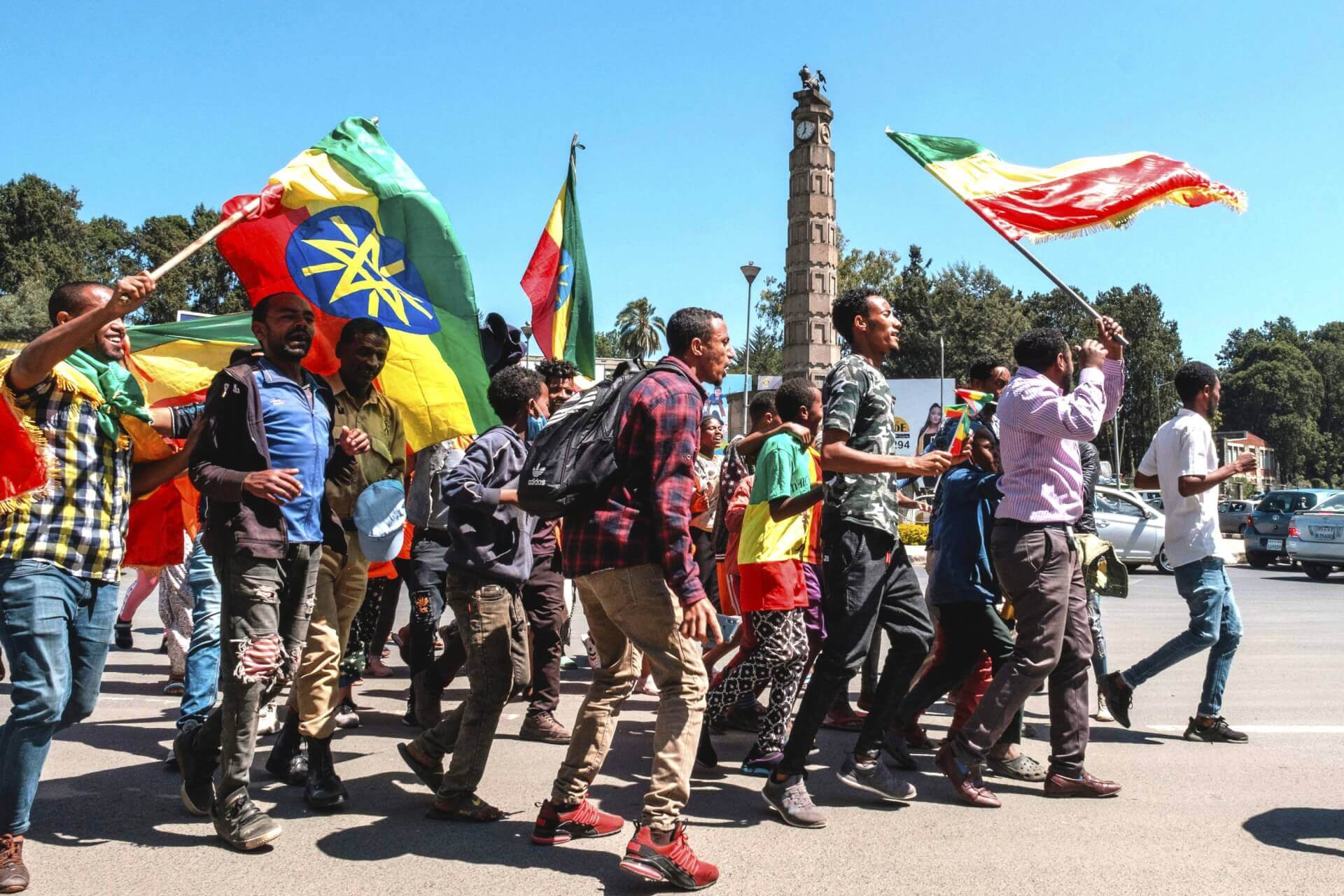As the Ethiopian military enters what Prime Minister Abiy Ahmed has described as the third and final phase of its operation to reassert its control over the northern Tigray region, international organizations, actors, and rights groups are looking back with alarm at a three-week conflict that has left at least 600 civilians dead and forced tens of thousands of others to seek refuge in neighboring countries.
The opportunity for dialogue and mediation has thus far been turned down by both sides. The government rejected an offer by the African Union (AU) to mediate the Tigray conflict, despite PM Ahmed meeting with the envoys sent by AU Chairperson Cyril Ramaphosa. The South African leader had hoped that sending former regional presidents—including Joachim Chissano of Mozambique, Ellen Johnson-Sirleaf of Liberia, and Kgalema Motlanthe of South Africa—would urge the Ahmed administration to seek a diplomatic approach. However, these efforts have thus far not yielded the desired results.
Likewise, on Monday, the Tigray People’s Liberation Front (TPLF), a local political party who has been charged with violating the constitutional order, refused to abide by PM Ahmed’s ultimatum to surrender within 72 hours. The Ethiopian leader had earlier called on Tigrayan fighters to defect from the TPLF’s cause and switch sides. However, TPLF leader Debretsion Gebremichael reiterated this week that he and his group are a “people of principles and [are] ready to die to defend our right to administer our region”. Furthermore, after launching a rocket attack on two airports in the neighboring Amhara region, the Tigray regional government said that they would not stop “unless the attacks against us stop”.
Military forces have already seized control of Edaga Hamus and Mehoni, and are now launching their final assault on the regional capital, Mekelle, which they are in the process of encircling.
It has been reported by the state-appointed Ethiopian Human Rights Commission (EHRC) that at least 600 civilians have died during the course of November as a result of “door-to-door” raids conducted by Tigrayan soldiers against ethnic Ahmaras and Wolkait.
However, given that PM Ahmed has ordered multiple air strikes and an unrelenting ground offensive, it is likely that the military, too, has inflicted multiple civilian deaths. In fact, Tigrayan forces allege that federal forces have killed civilians and targeted churches and homes.
Aside from human casualties, there has been significant damage to infrastructure, with various airports, schools, medical centers, bridges, and roads all reported destroyed.
The current conflict first erupted on November 4, when Ahmed launched a military offensive against the TPLF for allegedly attacking two military camps in the north and for more generally seeking to undermine democratic rule in the country.
The TPLF, for its part, claims that it is merely fighting back against PM Ahmed’s moves towards constructing a unitary system of government to replace the current federal system. The TPLF’s disdain for the central government was apparent in August, when the country postponed the national election due to the coronavirus pandemic but Tigrayan authorities held local elections in opposition of this ruling. At the same time, it firmly rejects Ethiopia’s alliance with Eritrea, with whom Ethiopia has historically shared tense relations.
Ethiopia has sought comfort in the support it has received from the United States (US), whose assistant secretary for African affairs, Tibor Nagy, said, “This is not two sovereign states fighting. This is a faction of the government running a region that has decided to undertake hostilities against the central government.”
Nevertheless, the US National Security Council (NSC) has called for dialogue between the two sides. These concerns have been echoed by the United Kingdom (UK), whose foreign secretary, Dominic Raab, indicated that the Kingdom is “very concerned” about what’s going on in Ethiopia right now. Similarly, the UN Security Council is set to discuss the conflict during a meeting on Tuesday. However, despite the efforts of the UN and the AU to de-escalate the conflict, no foreign envoys will be allowed to meet with the TPLF leadership.
Meanwhile, the UN High Commissioner for Human Rights, Michelle Bachelet, has said that reports of war crimes in region, which both sides claim have been committed by the other side, merit a thorough investigation. The UN is also concerned that the conflict will result in a humanitarian crisis, with “shortages of basic commodities such as flour and fuel” already being reported.
Ultimately, the conflict has not only impacted Ethiopia, but also neighboring countries. Over 40,000 Ethiopians have already crossed into Sudan. Aside from refugees, the conflict itself has spread across borders as well, with the TPLF firing rockets in Eritrea, and Tigrayan fighters reported in Somalia as well.
Although the government claims that the conflict is entering the final stages, the resolve of the TPLF appears to be unaffected, meaning that the disastrous impact on civilians and regional infrastructure could linger for some time yet.
Conflict in Ethiopia’s Tigray Region in Final Phase, Hundreds Dead, Thousands Displaced
The opportunity for dialogue and mediation has thus far been turned down by both the Ethiopian government and the Tigray People’s Liberation Front.
November 25, 2020

IMAGE SOURCE: AFPThe TPLF, for its part, claims that it is merely fighting back against PM Ahmed’s moves towards constructing a unitary system of government to replace the current federal system.
